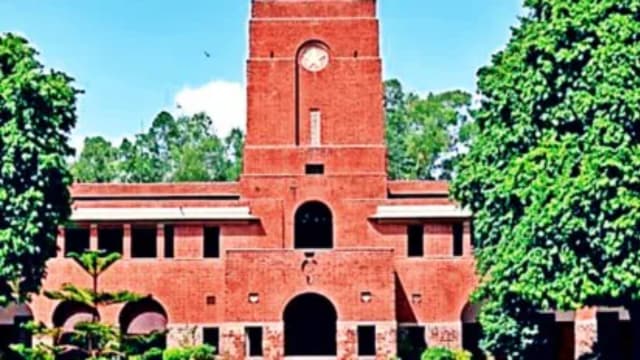Delhi High Court directs St Stephen’s to grant admission to 7 students who were allocated seats by DU
St Stephen’s and DU were at loggerheads over the seat matrix and allocation by the university.
 None of the students or their parents were present physically during the pronouncement of the verdict but joined virtually. (File Photo)
None of the students or their parents were present physically during the pronouncement of the verdict but joined virtually. (File Photo)Noting that “marksheets and human beings are fundamentally different and must be treated as such,” the Delhi High Court Friday directed St Stephen’s College to grant admission to seven students who were allocated seats there by Delhi University but, over a seat matrix dispute, were not granted admission by the institution after clearing their Common University Entrance Test (CUET).
Ruling against the contentions raised by St Stephen’s, and in favour of DU, the court parted with an oral remark that it hopes the students will now be “able to do well and that they can do some good for the college as well”.
Deciding on the issue of 5% extra allocation of students and if a decimal point value of less than 0.5 should be rounded off to their lower value or the next higher value, the court of Justice Swarana Kanta Sharma noted that “marksheets and human beings are fundamentally different and must be treated as such.” The court said, “The treatment of fractions in the context of human seat allocations cannot be equated to their treatment in mathematical calculations for marks on a marksheet… humans cannot be divided into fractions, and rounding off to the lower numerical figure would undermine the spirit of the policy.”
The court also issued guidelines, directing that “in future, the colleges which have any grievances regarding the seat matrix, will send their grievances to the authorities concerned of the Delhi University at least three months prior to the initiation of the admission process.” It further said, “The representation so made will be decided by the University within two months…”
Justice Sharma held that the college’s argument that the allocation of students to the college by DU through the Common Seat Allocation System (CSAS) has no statutory backing “is without any merit”. It further said, “St Stephen’s College, being affiliated to the Delhi University, is bound to follow the rules of CSAS insofar as admissions under non-minority categories and supernumerary categories are concerned.”
St Stephen’s and DU were at loggerheads over the seat matrix and allocation by the latter, with the college submitting that the university has been allocating more students to it than its permissible intake. This resulted in seven aspirants moving the Delhi HC challenging their denial of admission by the college.
On the issue of whether BA programmes offered by the college are to be treated as distinct programmes or a single programme, the court held that each combination under the BA programme “must be considered as separate and distinct programmes for the purpose of seat allocation and admissions under both the Christian Minority and Unreserved categories.” With respect to DU’s policy of reserving a seat for single girl child, which the college had opposed, Justice Sharma said the court cannot go into the constitutionality of the quota, as the petitions had been filed by students challenging the denial of their admission, and not the college challenging the constitutionality of the provision.
‘Petitioners not at fault’
“In this Court’s opinion, the petitioners were not at fault at any point during the process of admission but had to face undue hardship…This indecision on the part of the College had left the petitioners in a state of uncertainty… The prolonged ‘under process’ status…blocked their participation in subsequent allocation rounds, causing them to miss out on other potential options for securing a seat,” the court concluded.







